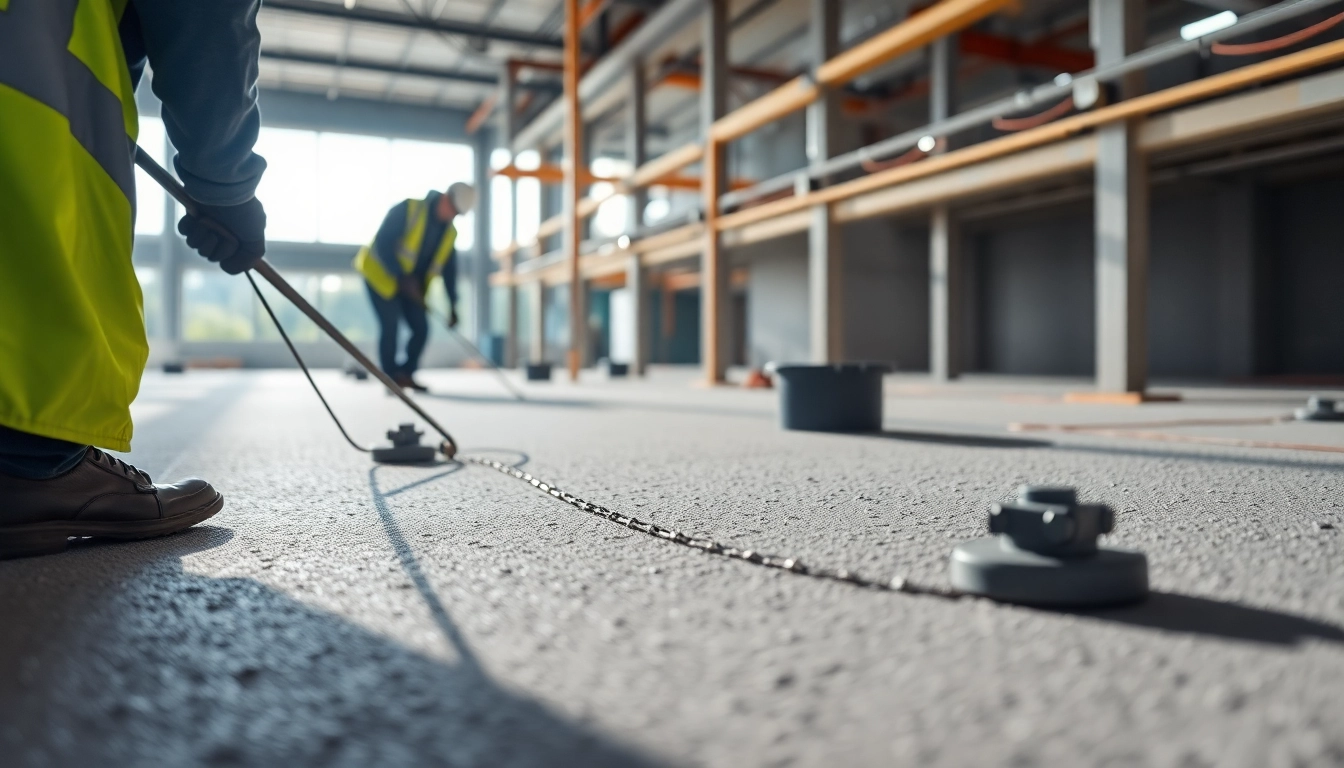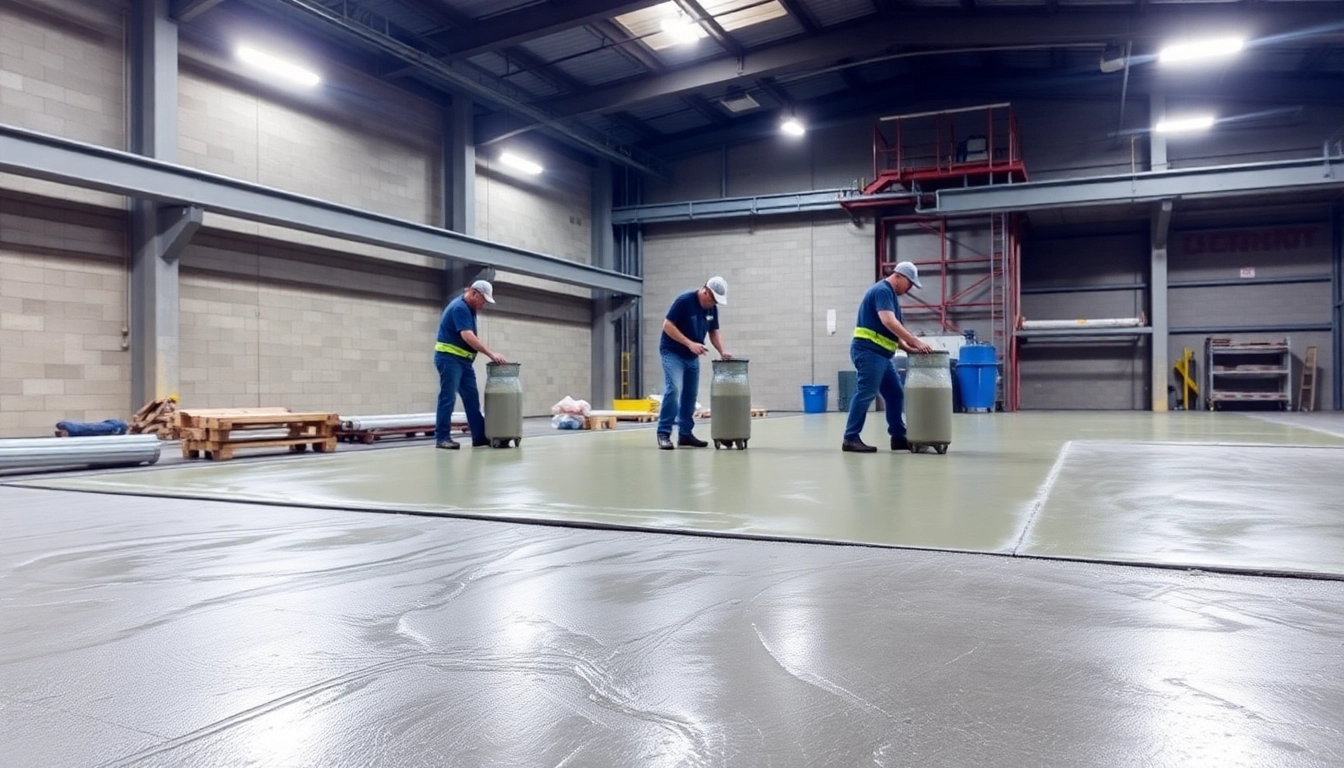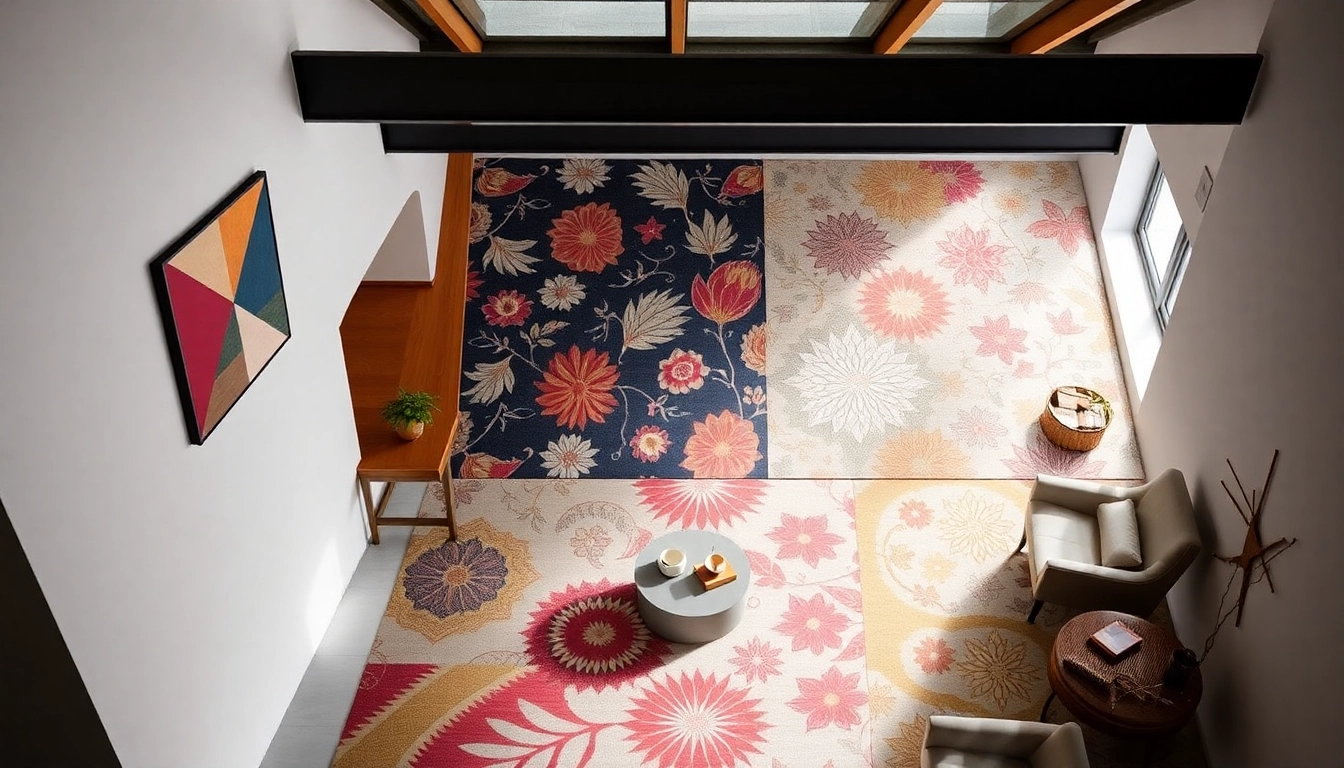Understanding Liquid Screeding and Its Benefits in Birmingham
In the rapidly evolving landscape of construction and renovation, liquid screeding has emerged as a game-changer for flooring solutions across Birmingham and the wider West Midlands region. This innovative flooring method offers superior efficiency, precision, and versatility, making it a preferred choice for both residential and commercial projects. For those considering a high-quality, durable, andheat-efficient floor, exploring the benefits of liquid screed is essential. To ensure optimal results, partnering with expert providers familiar with Birmingham’s unique building standards is crucial. You can discover reputable local specialists at Liquid screeding Birmingham, who bring extensive experience and industry-leading techniques to your project.
What is liquid screeding and how does it differ from traditional methods?
Liquid screeding is a flowable, self-compacting flooring material designed to be poured directly onto prepared substrates. Made from a blend of cement, additives, and potentially reinforcing fibers, this screed can be pumped onto a surface, creating a flat, smooth, and level finish with minimal manual intervention. The key distinction from traditional sand and cement screeds lies in its consistency and application process. Conventional screeds require manual spreading, troweling, and finishing — often time-consuming and prone to inconsistencies. In contrast, liquid screed’s fluid nature allows it to fill gaps and embed underfloor heating pipes seamlessly, producing an ultra-smooth surface that requires little to no further smoothing.
This difference translates into faster installation times and reduced labor costs, especially advantageous in Birmingham’s busy construction climate. Additionally, modern formulas of liquid screed often feature rapid drying and curing capabilities, enabling quicker project turnaround times.
Why choose liquid screed for Birmingham construction projects?
Birmingham’s construction and renovation sectors demand flooring solutions that combine durability, efficiency, and performance. Liquid screeding exactly meets these needs, providing a modern alternative to traditional flooring methods. Its compatibility with underfloor heating systems makes it particularly appealing for energy-conscious builders and homeowners seeking efficient heating solutions without sacrificing comfort.
Moreover, Birmingham’s dynamic urban development — spanning residential estates, commercial developments, and redevelopment projects — requires a flooring material that minimizes disruption and accelerates construction timelines. Liquid screed’s quick application and fast drying features help contractors keep projects within schedule, reducing downtime and associated costs. Its ability to produce a high-precision, level surface also reduces the need for extensive ground preparation and finishing, further streamlining project workflows.
Key advantages: quick installation, high precision, and thermal efficiency
- Rapid Installation: Liquid screed can be poured and levelled in a fraction of the time required for traditional screeds, which is a vital benefit in Birmingham’s tight construction schedules.
- High Precision: The self-leveling nature ensures consistent thickness and smooth surfaces, reducing remedial works and improving overall finish quality.
- Thermal Efficiency: When combined with underfloor heating systems, liquid screed maximizes heat transfer, leading to quicker warm-up times and energy savings — crucial considerations for Birmingham’s diverse climate and energy-efficient building designs.
Step-by-Step Guide to Installing Liquid Screeding in Birmingham
Preparing the substrate and base layers for optimal application
Proper preparation is the foundation of a successful liquid screed installation. In Birmingham projects, this involves ensuring the substrate is clean, dry, and structurally sound. Any loose debris, dust, or oil must be thoroughly removed, and cracks or uneven surfaces should be repaired beforehand. A suitable base layer, such as an insulation board or a damp-proof membrane, may be installed to improve thermal performance and moisture resistance. Once prepared, a bonding agent can be applied to ensure optimal adhesion between the substrate and the screed, minimizing the risk of future cracking or delamination.
Mixing and pouring liquid screed: best practices
The mixing process must adhere to manufacturer specifications to achieve the ideal consistency. Typically, liquid screed is mixed in a forced-action mixer to ensure homogeneity. The mixture should be porosity-free and free of lumps, which could compromise flowability and curing quality. Once correctly mixed, the screed is pumped onto the prepared substrate using professional equipment. The flowable nature of the material allows it to fill spaces seamlessly, and trained installers must monitor the pouring process to ensure even distribution and proper thickness control.
Once poured, the screed self-levels, but manual adjustments or trowelling may be necessary for edges and corners. The entire process requires skilled operators familiar with Birmingham’s building codes and environmental conditions.
Drying times, curing, and quality assurance measures
After installation, the drying time for liquid screed varies based on mixture composition, thickness, and ambient conditions. Typically, a minimum of 24-48 hours is necessary before walking on the surface, with full curing often taking up to 28 days. During this period, humidity levels, temperature, and air circulation should be managed to optimize curing and prevent cracks or warping. Quality assurance includes checking for movement cracks, ensuring flatness via laser level measurements, and conducting moisture tests before laying final floor coverings. Employing a reputable local contractor ensures adherence to Birmingham’s approved standards and building regulations, guaranteeing a durable, high-quality finish.
Selecting the Right Liquid Screed Contractor in Birmingham
Evaluating experience and certifications in liquid screed installation
Choosing a seasoned contractor is crucial for successful liquid screed projects. Experienced installers will demonstrate comprehensive knowledge of different screed formulations, mixing techniques, and application methods suited for Birmingham’s varying construction environments. Certifications from leading industry bodies signal competence and adherence to quality standards, providing peace of mind that your project will meet deadlines and specifications.
Questions to ask before hiring a screeding service
- What experience do you have with liquid screed installations in Birmingham?
- Can you provide case studies or references from prior projects?
- What materials and tools do you use, and are they compliant with UK standards?
- How do you handle unexpected challenges like moisture issues or substrate irregularities?
- What is your typical project timeline and warranty coverage?
Ensuring compliance with local building standards and safety regulations
Locally approved contractors will strictly adhere to Birmingham’s building regulations, including health and safety protocols. They ensure accurate permit acquisition, consistent application standards, and proper waste disposal. Collaborating with licensed professionals also guarantees that your project aligns with the UK’s high standards for construction quality and environmental impact.
Cost Factors and Timeframes for Liquid Screed Projects in Birmingham
Pricing components: materials, labor, scope of work
Understanding the cost structure is essential for budgeting. Expenses include the cost of modern liquid screed materials, which vary based on formulation and additives, and the labor involved in preparation, pouring, and finishing. Additional costs may arise from substrate improvements, underfloor heating installation, and project complexity. Typically, prices are calculated per square meter, with larger areas benefiting from economies of scale. Securing detailed quotes from multiple local providers ensures transparency and informed decision-making.
Typical project durations for residential and commercial sites
Residential projects, such as extension floors or new builds, generally take 2-4 days for installation, with drying and curing adding time before the final floor covering can be laid. Commercial projects, especially larger scale developments, might span over a week, factoring in preparation, pouring, and quality checks. Birmingham’s climate and building specifications influence project timelines, making expert planning essential for avoiding delays.
Tips for budgeting and managing project timelines effectively
Early engagement with experienced contractors allows for precise scheduling, procurement planning, and contingency adjustments. Incorporating buffer periods for drying and unforeseen delays ensures your project remains on track. Budgeting should factor in not only installation costs but also potential additional expenses such as substrate repairs or temperature management during curing. Regular communication and progress monitoring are key to avoiding costly overruns and ensuring timely completion.
Maximizing Performance and Longevity of Liquid Screed Floors in Birmingham
Integrating underfloor heating systems with liquid screed
The synergy between liquid screed and underfloor heating elevates both comfort and efficiency. Proper installation involves embedding pipes or mats within the screed layer, ensuring maximum heat transfer. Birmingham’s varying temperatures make efficient heating systems a practical investment. Selecting a contractor experienced in underfloor heating integration guarantees optimal pipe layout and screed thickness, minimizing thermal bridges and maximizing energy savings.
Maintenance tips for long-lasting, high-quality floors
While liquid screed requires minimal maintenance, periodic inspection for cracks or moisture issues is recommended. Ensuring proper cleaning of surface finishes and avoiding excess moisture during the initial curing phase prolongs floor life. For floors with underfloor heating, maintaining consistent temperature settings and scheduling professional checks prevent long-term damage. Employing durable floor coverings like tiles or epoxy coatings further enhances lifespan and reduces wear.
Case studies showcasing successful liquid screeding projects in Birmingham
One notable project involved a Birmingham-based commercial development where liquid screed was used to quickly level an expansive office floor, integrated with underfloor heating to improve energy efficiency. The project was completed within the scheduled timeframe, with minimal finishing work required afterward. Another residential refurbishment project adopted liquid screed to renovate a historic Birmingham property, delivering a perfectly flat floor ready for final finishes while preserving structural integrity. These examples underline the versatility and advantages of choosing expert liquid screeding services in the region.




